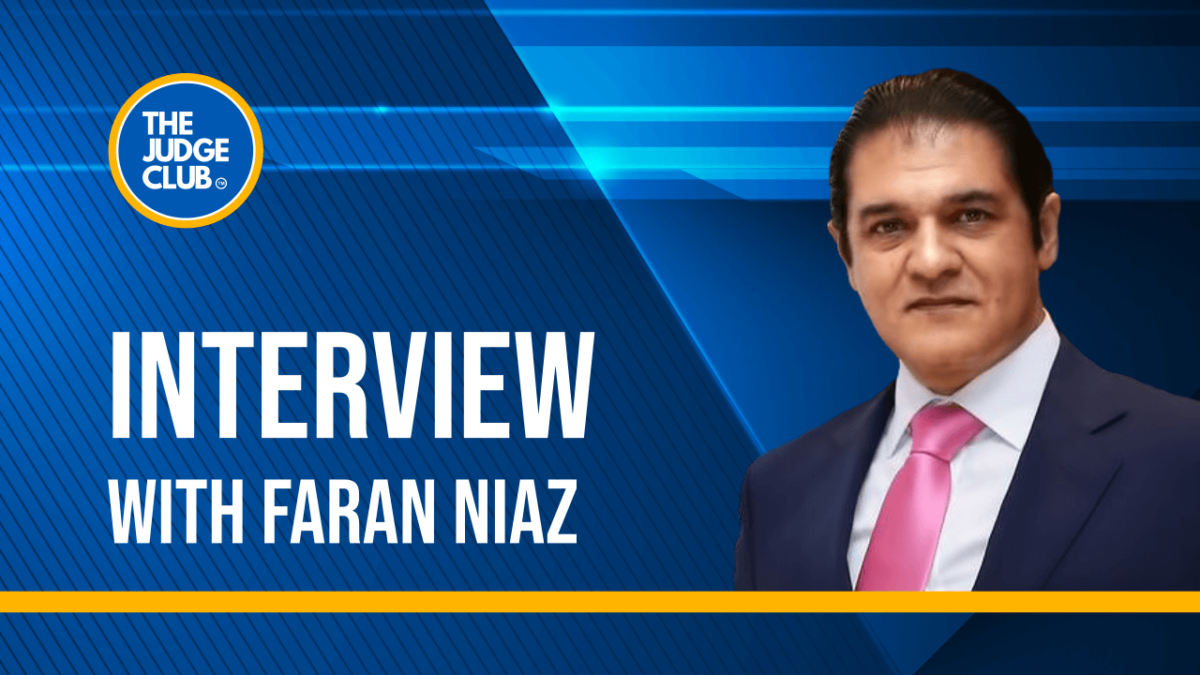Recently we had a chance to talk to Faran Niaz, one of the most prominent members of our community, and discuss the ins and outs of judging at an awards programme. Read the interview in full to find out how Faran prepares for scoring an initiative and what advice he has for fellow judges.
1. How to prepare for the finals?
There are two parts of judging: the written part, and the physical presentation, either online or in person. And both of them need to be dealt with differently. This is how I do it; in any given situation, I used to have five to seven (maximum) entries that I would assess. So, before scoring, I read each entry twice to tell me which is a stronger story and which is a stronger case. If you go question by question, the story is breaking, so I read it as a story.
I make sure that the story is very clearly written and relevant to the subject; I make sure that all the answers are related to the topic. Secondly, every result should be backed and presented by facts. If someone says I’ve improved my NPS, I want to see the scores. I want to see the scores of at least the last couple of years just to see a trend. And then, they need to relate why the scores were improved. So, you need to be clear that if you’re scoring something, there has to be a fact behind it.
Also, do not judge the entries according to global standards; judge the entries according to each other. So, if I have five entries, my job as a judge is to judge these five and find the best out of them five. I’m not trying to find the best in the world, but the best of these five. The example that I always give: if you have a race of five runners, whoever wins the race, wins. Read all the entries first, two times, then score, and then evaluate, and you should be very clear about who the best is in your mind.
2. How to perform at your best during the presentations?
Join the presentation with zero preconceived notions. I have already judged the written and know who’s the best in my written. But, to my surprise and in my experience (over 30 years), I’ve seen some of the worst presentations with the best-written entries, and some of the best presentations with the worst-written entries. So both of them are different. If you’re judging physically or online, make sure you know about the companies but don’t have a preconceived notion. This is a new day, a new presentation, and you have to judge them according to what you will see now.
Also, listen to the presentation. What am I listening to? If somebody says I have done a great job, it needs to be backed by facts: there should be facts and pictures, videos, and passion. I’m looking for passion, presentation style, and who’s presenting. Look at the material, make sure that you know the company has achieved what they are talking about. And since you’ve already done the written, you will know if there is a match or a mismatch.
3. How to know what to ask in the Q&A session (after the presentation)?
You can only ask a question if you are attentive if you’re listening. So, if you’re sitting there and just watching, and you’re not taking your notes, you will not be able to ask a question. Also, if someone says We did an amazing job, I go back and ask – how? So, a question needs to be something that is now clear, that will make them think and give you more facts. An intelligent question can totally change your mind. If you’re unclear about something, you ask a question, and you get the clarity, and you say – okay, now I can score properly because now I have all the information I need.
Ask for things that are missing. So, your question needs to be something that is missing or something that can add value to the presentation that’s already been done. Don’t ask a question for the sake of it; judges know it, we all know it, and the people presenting will also know you are asking a question for the sake of asking.
4. How to summarise the initiative in the Feedback Report?
What is the importance of this summary? Let’s be clear: the summary is not going to win or lose the award; the award is won or lost on the score, not on the summary. But we, as judges, should add value in the report because it goes directly to the company. I try to put my comments of what was good and what was bad.
So, if the numbers are missing, if the facts are missing, I just write: the facts are missing, I have nothing additional to score or I wish they would have given me an analysis to see how the numbers improved; I could not see that. The improvement may be one per cent, which is nothing, and there comes another company with improvement of twenty percent. Or, if there was something good, I write that the facts are there, they did I did a great job. My suggestion is to write it with bullet points instead of writing it as a paragraph. Whatever you write in there, think from the perspective of the company or the organisation that can learn something from it and improve or keep doing the same.
Do you want to be featured in a TJC interview or submit a guest blog article about your area of expertise? Don’t hesitate – get in touch with Ana Veljkovic and she will provide you with all the details!

